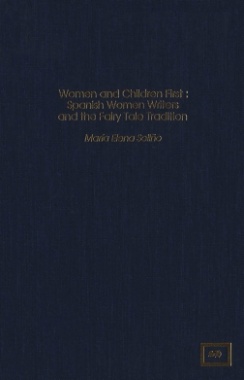

Although the three authors studied, Ana María Matute, Carmen Martín Gaite, and Esther Tusquets, are sophisticated intellectuals, they have chosen fairy tales and texts from other marginalized genres originally for female consumption (such as the novela rosa and the Hollywood women's picture) as the major intertexts in their novels for adults as well as in their fictions for children. Against the backdrop feminist theory and recent critical studies of fairy tales and children's literature, Soliño studies the works of these authors as gendered texts. Soliño's book opens with a chapter that traces the historical development of the fairy tale genre, examines their didactic intent, and critiques the images of women in fairy tales. The second chapter explores the manners by which fairy tales were used as a tool for indoctrination during the formative years of the three authors under consideration. These introductory chapters are followed by individual chapters devoted to Martín Gaite, Matute, and Tusquets in which Soliño explores the connections between the literature these authors published for children and the novels they penned for an adult readership.